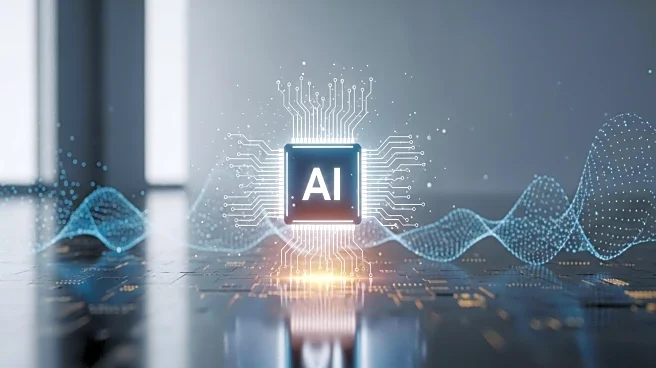What's Happening?
Karen Hao, author of 'Empire of AI,' has observed OpenAI's evolution from a nonprofit entity to a $90 billion leader in artificial intelligence. Initially focused on developing AI for the benefit of humanity, OpenAI's approach shifted to a typical Silicon Valley strategy of rapid growth and scale. Hao shared insights on TechCrunch's Equity podcast, highlighting the internal dynamics within OpenAI, including the influence of its three internal 'clans' on the company's direction. She also discussed the environmental and labor costs associated with AI development, particularly the exploitation of data labeling workers in developing countries.
Why It's Important?
The transformation of OpenAI into a major player in the AI industry underscores the significant impact of AI on global economic and political landscapes. As AI companies grow, they accumulate substantial power, often at the expense of ethical considerations and environmental sustainability. This development raises concerns about the concentration of resources and the exploitation of labor, prompting investors and founders to reconsider the current trajectory of AI development. The narrative of competition with China further influences Silicon Valley's strategies, highlighting geopolitical dimensions in the tech industry.
What's Next?
The discussion on TechCrunch's podcast suggests potential shifts in the AI industry, with opportunities for founders to explore alternative models that prioritize ethical and sustainable practices. As the industry continues to evolve, stakeholders may push for regulations and frameworks that address the environmental and labor issues associated with AI development. The ongoing debate about the pursuit of artificial general intelligence (AGI) may lead to new approaches that balance innovation with social responsibility.
Beyond the Headlines
The rise of AI empires like OpenAI prompts deeper reflection on the ethical implications of technological advancement. The exploitation of labor and environmental degradation associated with AI development challenge the industry's commitment to 'building for humanity's benefit.' This situation calls for a reevaluation of the values driving technological progress and the need for a more equitable distribution of resources and benefits.









